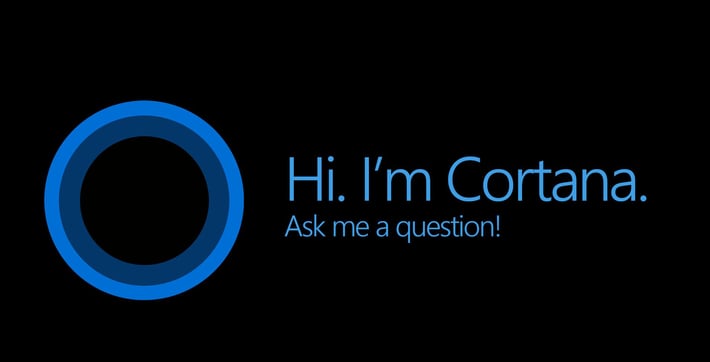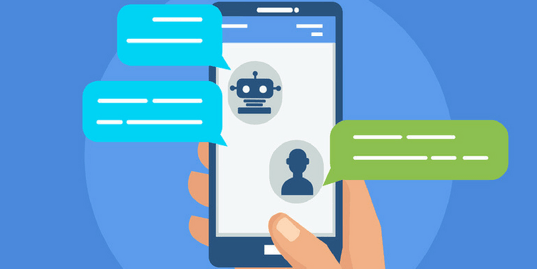7 things you won't know: What are Chatbots and Why do you need it?
What are chatbots?Chatbot or a ‘chatter robot’ self-explains its mechanism of interaction using some super advanced technology via a chat interface....
3 min read
Sales : Oct 23, 2017 12:00:00 AM


Chatbot is the new buzz word in business and for the right reasons. From simple QnA bots to artificially intelligent conversationalists, chatbots have come a long way in understanding and solving human problems. Now chatbots can process all forms of data whether it is text, audio or visuals. This increased potential of chatbots has presented itself as a new opportunity in the hands of marketers and executives. They can now use them to streamline internal communication, provide customer support, personalize buying recommendations etc. Though we know that bots are becoming intelligent, we don’t really understand what goes into making intelligent bots (or AI Chatbots). A common question asked is how intelligent a bot should really be and what goes into making intelligent chatbots? Here we will answer both these concerns.
Want to know everything about chatbots in one go? Download our comprehensive chatbot eBook covering the latest trends, uses and developments.

Bots aren’t smart by default. They are made capable of showing some level of artificial intelligence by leveraging technologies like machine learning, big data, natural language processing etc. In this blog, we will analyze how artificial intelligence in infused in chatbots and what makes them capable of simulating human-like conversations.
Read More: Top 11 Chatbots Trending in 2017
Understanding the context in a statement is the most challenging aspect of automating human communication. To gain a good understanding of context a bot needs to analyze inputs like time, day, date, conversation history, tone, sentence structure etc. These variables are then analyzed to enable bots to understand the context in conversation. For example, in the sentence, “Great! Now the flight is delayed by one more hour”, the user isn’t happy about the flight being late but it is easy for a machine to make a mistake here if it is unable to understand the context.
We expect a chatbot to be as human as possible. To accomplish a human-like conversation a bot needs a tone and dialect for communication. Just like humans have. The communication made with the bot needs to be consistent in terms of language and style. We don’t expect the bot to talk in different accents or tones. To accomplish this, it is important to plan a character for the bot and stick to it while managing communication. Achieving this coherence is very complicated especially for bots that can communicate in audio alongside the text.
A chatbot can easily work on a predefined conversation flow. These flows are designed to take the users from the stage of introduction to the conversation. Most of the chatbots conversation we have are usually based on this predefined flow. Generally, there no need for an AI chatbot for these conversations. But it becomes complicated to make these flows in case of open-ended conversations. This where artificial intelligence comes in handy. An AI chatbot can look for solutions to user’s queries from various sources like internet and prebuilt datasets to give appropriate responses.
It is common for a chatbot to ask multiple questions from the user to know about their preferences. This is fine for users as well, but if the same questions are asked every time you try to communicate with the bot, then it will become irritating. Also, we have a habit of continuing a conversation from the point we last left of. Thus, machine learning abilities are a must have if a chatbot is to be considered artificially intelligent.
Read More: 5 Simple Rules to Create Addictive Chatbots

Now that we know the key elements that make a chatbot intelligent the next step is to estimate your requirements. A chatbot can be intelligent in multiple ways. It could be just good enough to understand context or it can be as good as Siri or Cortana. One thing executives miss out is that a number of complexities are involved in making these AI chatbots. The resources involved in time and money increase in direct proportion to the level of bot’s intelligence. So how do determine your requirements?
The best way to solve this is to closely analyze your goals. If your chatbot is meant to solve a specific problem then it is better to go for predefined communication flows. This will save you resources and will ensure a pleasant experience and high conversion rate. On the other hand, if your aim is to engage users on a wide range of topics then opting for AI chatbots is the way to go. Considering that chatbot is still an evolving technology, it is better to limit your focus and be specific in communication. Once you notice a positive ROI or at least some momentum in the usage of your bot then you can eventually increase its scope and intelligence.
If you want to create a chatbot for your business then feel free to get in touch. We have already created many chatbots for different industries like retail, healthcare, insurance etc. and would be more than happy to do the same for you. Contact us today for a POC, project or consultation.

What are chatbots?Chatbot or a ‘chatter robot’ self-explains its mechanism of interaction using some super advanced technology via a chat interface....